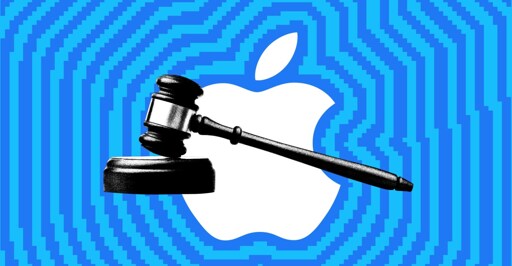Epic Games v. Apple judge Yvonne Gonzalez Rogers just ruled that, effective immediately, Apple is no longer allowed to collect fees on purchases made outside apps and blocks the company from restricting how developers can point users to where they can make purchases outside of apps.
. .
The judge also referred the case to the US attorney to review it for possible criminal contempt proceedings.



Why did it take them 4 years to enforce their own ruling?
Apple has $50B+ in literal cash. Epic’s entire revenue is under $7B/yr. Apple can afford to run Epic for decades on their cash reserves alone without impacting their bottom line.
That’s why it took 4 years. I’m surprised Apple didn’t bury them.
I don’t understand what that has to do with anything? It doesn’t cost either of them anything to enforce a ruling the court already made.
To be clear, I’m not defending anyone here…
Apple likely delayed it multiple times.
They delayed the enforcement of a ruling? I don’t think even they have that power.
sure they can, all they had to do was ignore the ruling
That doesn’t delay the enforcement of the ruling.
What enforcement?
The enforcement outlined in the OP?
Because the legal system is low moving even when major corporations aren’t trying to delay things and you can bet that Apple did everything they could to slow down enforcement. I’m surprised it only took 4 years.
What can they do?
deleted by creator
All of that takes place during the trial, not after.
The answer you’re looking for is: it took 4 years to enforce the original ruling because Apple appealed that decision. Many of the slow walking tactics used during the original trial remain available during the appeal stage.
Interesting that the article doesn’t say anything about an appeal, and also that Apple will appeal this decision as well…
2024 was the end of the appeals process with the Supreme Court.
Per the wiki:
While Apple implemented App Store policies to allow developers to link to alternative payment options, the policies still required the developer to provide a 27% revenue share back to Apple, and heavily restricted how they could be shown in apps. Epic filed complaints that these changes violated the ruling, and in April 2025 Rogers found for Epic that Apple had willfully violated her injunction, placing further restrictions on Apple including banning them from collecting revenue shares from non-Apple payment methods or imposing any restrictions on links to such alternative payment options
or they can donate to Dumnald’s inauguration fund and get a corporate pardon tomorrow